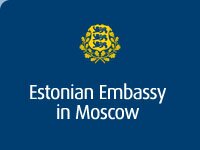Meeting of European Union Foreign Ministers Focuses on Access to Education and Water in Conflict Zones
07.09.2012
At the meeting of European Union foreign ministers held today in Cyprus, Foreign Minister Urmas Paet noted that matters related to education are playing an increasingly important role in foreign and security policy. “Education is a sector that affects the development of all societies, which is why the EU must equalise and more efficiently plan its activities in education matters,” he said.
The foreign minister stated that education plays an important role in building up post-conflict societies and ensuring stability, and the European Union must find opportunities to make its activities in this area more effective. “For example, we must consider how to ensure continuing education for those children or youths who reside in a conflict zone or those who have been forced to flee their homes,” Paet added.
The foreign minister noted that within the framework of Estonian development co-operation in post-conflict states, Estonia has turned a lot of attention to education issues in Afghanistan. “We have helped to improve the accessibility of education and the learning conditions for children in Afghanistan through many different projects. Afghanistan and Estonia are also connected by a network of friendship schools,” he stated. Paet said that reform processes in society also facilitate access to education and a general increase in the quality of education.
At the meeting, the foreign ministers also talked about water issues and acknowledged that matters related to water supplies could become one of the biggest sources of disagreements and conflicts in the world. “We can estimate that by the year 2020 water consumption will increase by 20% but water resources will decrease as a result of climate change, which in turn will lead to water shortages in many countries,” Paet noted. The foreign minister added that in this situation water could become a strategic resource that is used as a means of influence.
It is in the interests of the European Union if limited water supplies in areas of the Middle East, Northern Africa and Central Asia are not allowed to lead to conflict or failed states. “The EU must already today take steps in order to improve water supplies in countries with little water and to support investments into updating water and sprinkler systems,” said Paet. Also important are the EU’s scientific and technological expertise in pollution issues and agricultural reform.
SPOKESPERSON'S OFFICE
+372 637 7654
 
|

